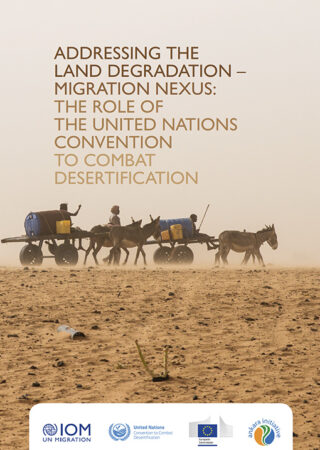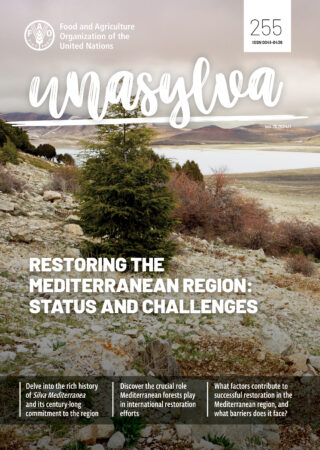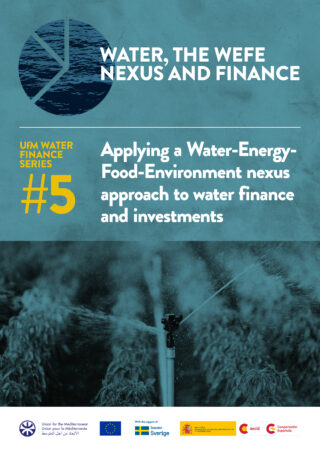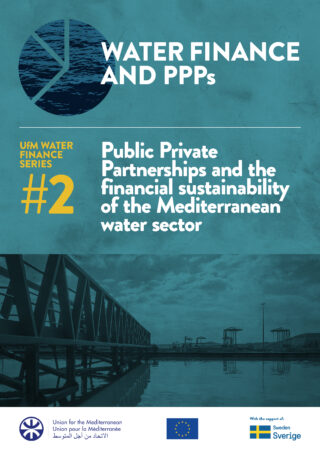
Addressing the land degradation – migration nexus: the role of the UN Convention to Combat Desertification
The United Nations Convention to Combat Desertification (UNCCD), signed in 1994, constitutes the sole international agreement linking environment and development to sustainable land management. The 197 Parties to the Convention work together to improve the living conditions for people living in drylands, by maintaining and restoring land and soil productivity and mitigating and adapting to the effects of drought. Dry lands are home to approximately 3 billion people who account for 38 per cent of the global population (IPCC 2019). Today, more than a quarter of humanity faces a looming water crisis, which will only accelerate as the impacts of climate change worsen (Sengupta and Weiyi 2019). The majority of people affected by drought and land degradation are already poor or chronically poor, which means that these phenomena could increase the levels of forced migration by adding a layer of supplementary stress to already vulnerable populations (Black et al. 2011; Mach 2017). The Convention’s preamble recognizes that: “desertification and drought affect sustainable development through their interrelationships with important social problems such as poverty, poor health and nutrition, lack of food security, and those arising from migration, displacement of persons and demographic dynamics.” In so doing, the Convention constitutes the first ever intergovernmental environmental agreement to explicitly link migration issues with environmental change. In order to address the specific challenge of forced migration, Articles 10 and 11 of the Convention encourage the development of measures to prepare for and mitigate the impacts of drought through the “establishment and/or strengthening, as appropriate, of early warning systems, including local and national facilities and joint systems at the sub-regional and regional levels, and mechanisms for assisting environmentally displaced persons.” The UNCCD is not simply an environmental agreement; crucially, it is also a social agreement that is fully committed to the protection of the most vulnerable groups. As a result, the Convention acknowledges that resolving the impacts of desertification, land degradation and drought (DLDD) must go hand in hand with improving the livelihoods of those most vulnerable.
Author: Sara Vigil, Research Fellow at the Stockholm Environment Institute (SEI), under the supervision of the International Organization for Migration and the United Nations Convention to Combat Desertification / International Organization for Migration (IOM)
September 2019




